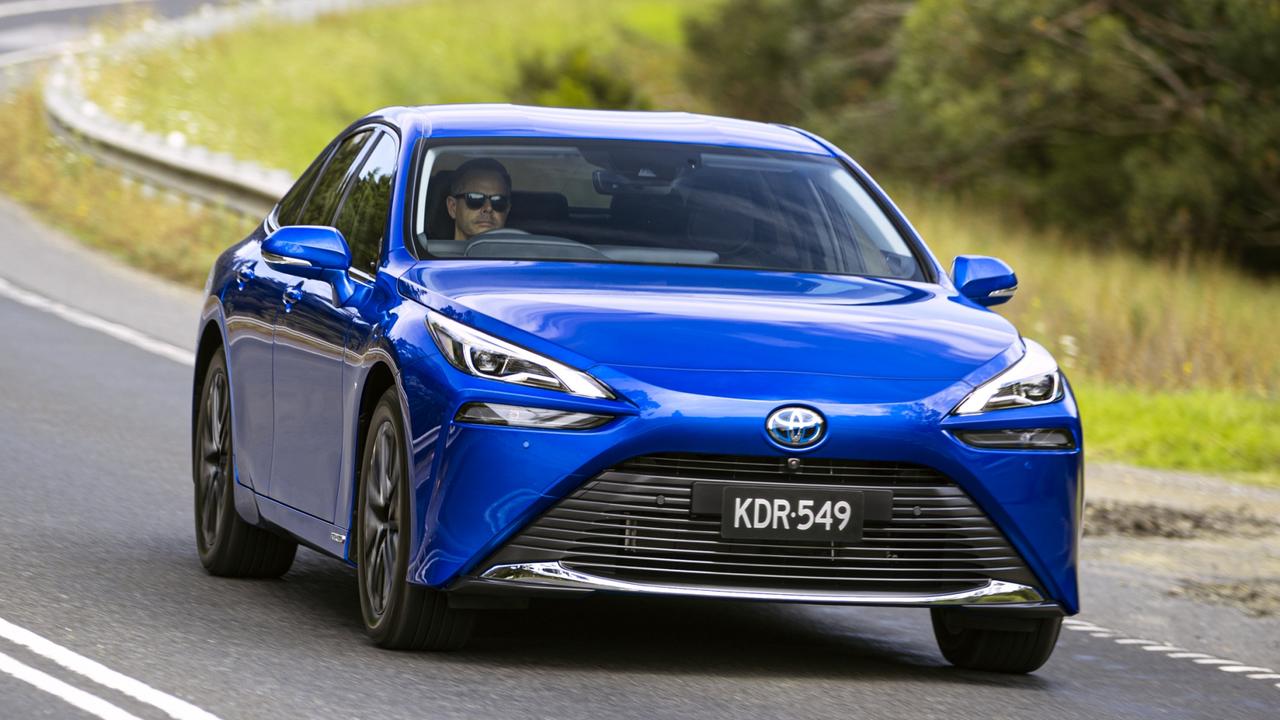Toyota’s new car breaks world record
The Japanese giant has shown off the amazing ability of its next-generation vehicle that could change the cars we drive for good.
This is why you might never have to plug in your electric car.
Toyota has just set a Guinness World Record for the longest distance travelled by a hydrogen-powered car without refuelling.
The Toyota Mirai was driven 1360km on a roundtrip tour of Southern California earlier this year, which far surpasses even the most long-legged battery-powered electric car.
Even more amazing is the Mirai’s tank only took five minutes to fill, which is similar to conventional petrol and diesel vehicles. The Mirai used a total of 5.65kg of hydrogen during the test.
Fuel-cell vehicles with hydrogen tanks are still prohibitively expensive, but many, including Toyota and Hyundai, see them as a long term ticket to emissions-free motoring.
The appeal is the short recharging time compared with plug-in EVs, which can take an hour to fully recharge from a fast-charging station.
Plug-in EVs also dramatically slow up the last 20 per cent of fast charging to protect the battery from overheating.
The Toyota Mirai uses a fuel cell to convert hydrogen into electricity and power an electric motor making 134kW/300Nm. The only tailpipe emission is water.
Hydrogen is being touted as a possible climate change battling fuel, but it depends on the method of creating the hydrogen.
Most hydrogen being created now is called “blue hydrogen” that uses energy from fossil fuel offset by carbon capture. But “green hydrogen” uses renewable energy sources to split hydrogen from water.
Hydrogen-powered cars are relatively new. Toyota and Hyundai are the two biggest proponents of the emerging technology.
Hyundai currently operates a fleet of its Nexo hydrogen-powered SUVs in Australia, leasing them to companies and government as part of a trial of the new tech.
Toyota has a similar program in Australia for its Mirai sedan.
Earlier this year a Hyundai Nexo piloted by Australian rally driver Brendan Reeves travelled from Melbourne to Broken Hill in far west NSW on a single tank of hydrogen. The 807km trip was a world record at the time.
Toyota believes hydrogen could be big business by 2030, though, especially in large four-wheel drives such as the LandCruiser and HiLux.
Hyundai predicts that fuel-cell vehicles will have price parity with battery electric vehicles by the end of the decade.
Initially, the company plans to focus on trucks, utes and vans. It aims to apply hydrogen power to every one of its commercial vehicles by 2028.
Currently only about 15,000 hydrogen fuel cell vehicles are being built every year compared to up to 4 million battery electric vehicles and more than 100 million petrol and diesel vehicles.
Australia is in a strong position to take advantage of the new technology and both the Federal Government and the private sector are keen to invest in new projects.
For all the latest Technology News Click Here

